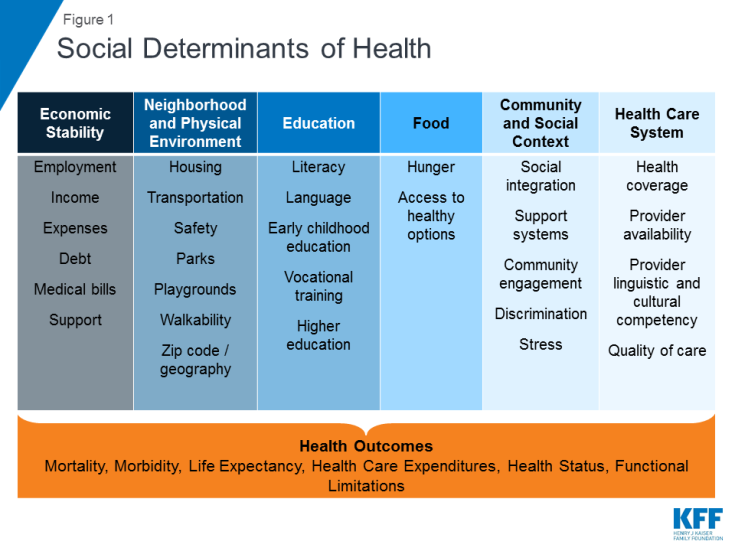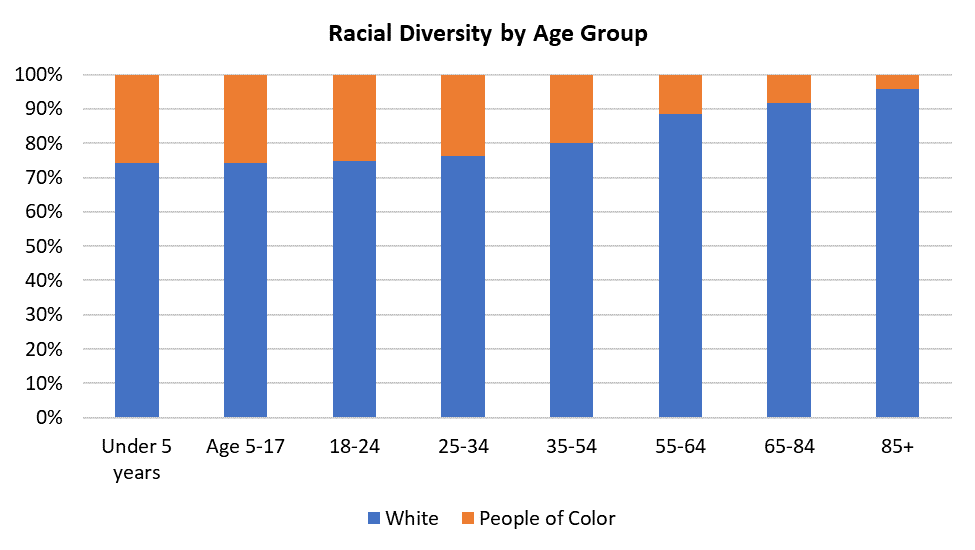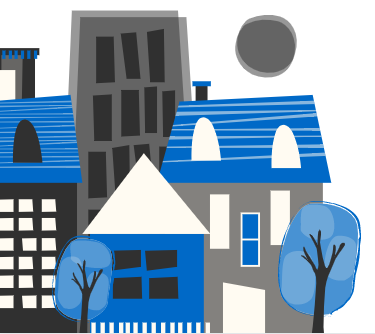Housing Segregation and the Birth of Johnson County – View the Video Story
UCS promotes a vision and a belief that our efforts – research, education, advocacy, resource allocation and most importantly thoughtful planning and collaboration – can impact and improve the well-being of our community’s most vital and diverse resource: its people. That is why we have focused on the need for attainable housing options for all Johnson County residents. We want to ensure that Johnson County has an array of housing options to meet the needs of residents so that everyone can thrive.
Our history tells us that this community has not always prioritized diversity and inclusion of all people. An exhibit at the Johnson County Museum tells the story of the birth of Johnson County. As White families were building their American Dreams in the new suburbs of Johnson County after World War II, families of other racial and ethnic identities were strictly prohibited from participating. There were several racially restrictive legal tools that developers, real estate agents, and government agencies used to ensure suburban neighborhoods remained all-white. From deed restrictions to homes associations to FHA-subsidized communities, Johnson County, like many of the United States’ new suburban developments, witnessed each of these tools in action. As you will learn in this short video, structural racism played a significant role in Johnson County’s early development.
Structural racism is a system in which public policies, institutional practices, cultural representations, and other norms work in various, often reinforcing ways to perpetuate racial inequities. One example of structural racism is residential segregation, a form of ongoing structural racism that has been well-studied as a fundamental cause of racial disparities in health. Residential segregation is the outcome of historically imposed public policies, such as redlining, that result in disparate health outcomes for communities of color. Health outcomes associated with residential segregation include adverse birth outcomes, increased exposure to air pollutants, decreased longevity, increased risk of chronic disease, and increased rates of homicide and other crime among African Americans. Johnson County Department of Health and Environment’s COVID-19 dashboard indicates people of color (Black and Hispanic residents) have a “crude case rate” of COVID-19 that is up to four times higher than that of White residents. Crude case rate is calculated by the total number of infections of a racial/ethnic group divided by the total number of people in that racial/ethnic group.

A vast and growing body of research consistently shows that racism has the potential to create negative health outcomes for people in our community. Quality education, employment, livable wages, healthy food, stable and attainable housing, and safe and sustainable communities are factors that shape health. When these factors are distributed in unfair and unjust ways due to structural racism, they contribute to systemic racial and ethnic disparities in health. Racism is a major barrier to health equity and is a social determinant of health.

We are not the Johnson County of the past, but we are living with the outcomes of residential segregation that was at the center of Johnson County’s early development. The legacy of residential segregation is written on the landscape; it created demographic patterns that maintain segregation even today. Our community is starkly segregated by race and income. As housing costs rise, we risk losing out on the opportunity for a diverse and vibrant community where everyone, regardless of race or income, can live, prosper and contribute to the sustainability of our community. The most recent UCS fact sheets indicate that workers in the occupations deemed “essential” in our community – many of whom are Black and Hispanic– may be burdened by the cost of housing in Johnson County. The economic impacts of COVID-19 on essential workers may exacerbate the disparity even further.

Our community is only going to become more racially diverse over time. In the midst of calls from across our nation for systemic change, we must be thoughtful about planning now to ensure that current and future Johnson County residents of all races are able to attain housing, pursue employment opportunities, access education, and feel included and connected to their communities.
We want to hear your voice as we plan for the future! The cities, county, and United Community Services of Johnson County (UCS) are seeking community input on the County’s housing market in a newly released housing survey. The survey is part of a county wide housing study currently underway and provides an opportunity for people who know the communities in Johnson County best to share their insights.
Please take a 15-minute survey to help us understand the housing needs in our community. Responses will be collected through the end of July 2020. Click on one of the links to take the survey online (Survey is available in English and Spanish):
https://www.surveymonkey.com/r/JoCoHousing
https://www.surveymonkey.com/r/JoCoHousingSpanish
UCS Human Service Summit – Register Today!
 UCS’ annual Summit will be held Wednesday, August 26, 8:30 a.m. – 12:30 p.m. at the Johnson County Arts & Heritage Center
UCS’ annual Summit will be held Wednesday, August 26, 8:30 a.m. – 12:30 p.m. at the Johnson County Arts & Heritage Center
Join UCS for the 2020 Human Service Summit – Build Our Housing Future. Be a part of the community conversation on housing, get an early look at housing data and survey insights from the Housing Study, and learn how you can participate in the Housing Task Force.
This year’s Summit will focus on the 2020 Johnson County Municipalities Community Housing Study/Task Force that is currently underway. The cities, county and UCS recently launched a community wide housing market and needs assessment, the findings of which will be used for a 10-year outlook on housing that local officials can use to make policy decisions in the future.
This is a unique opportunity to come together with representatives from various community sectors who care deeply about Johnson County and to take part in a Housing Study listening session. Our community’s economic vitality and sustainability is only as healthy as those who live and work here.
Due to COVID-19 safety measures, this year’s Summit will have reduced in-person seating capacity and offer a virtual participation option. In-person attendance will include safe distancing measures, access to masks, and other appropriate safety measures. The $25 registration fee is the same for either option.
Click here to sign up for in-person attendance
Click here to sign up for virtual attendance
Census 2020: Let’s make sure EVERYONE is counted!

The 2020 Census is underway. While Johnson County has one of the highest response rates in the state – nearly 75% response – there are many who have not been counted. Historically, communities that have been more likely to be undercounted in the census include young children, Black and Hispanic residents, renters, indigenous people, older adults, high-mobility young people, and rural residents. A Census tract of Johnson County indicates that response rates vary by geographic location, with lower response rates in areas that also have a higher concentration of low-income residents according to research by UCS.
Let’s make sure everyone gets counted, especially those communities at risk for being undercounted. “Trusted voices” make a huge difference where the 2020 Census is concerned. Encouragement to respond to the 2020 Census has far greater impact when coming from a trusted friend, neighbor, family member, or service provider. Below is a sample script you can use in your outreach!
Sample phone script (short version):
“Hello! I’m calling to make sure you/your family is included in something extremely important that is happening right now, the 2020 Census. The goal of the Census is to count everyone living in our community. Our political representation and federal funding is distributed based on these counts which impact the future of our communities and our families through 2030. This is our chance to get it right for the coming 10 years. Will you help?”
“You can choose how you respond: online, by phone, or by mail. Visit my2020census.gov or call 1-844-330-2020 (Spanish: 1-844-468-2020) to ask questions or respond over the phone. I just finished mine and it was easy, simple and safe — your response is completely confidential. Help us to make history and get this done today!
“I challenge you to call five more people with the same message. Be sure to let them know responding to the 2020 Census is safe, easy and important.”
Sample text message: Have you completed your 2020 Census? Don’t be left out! It’s all about representation and getting federal funds for our community. It’s safe, easy and important. Remind your friends and families, too.
For more information on the Census and Johnson County’s Complete Count efforts, go to Count Me In JoCo.
